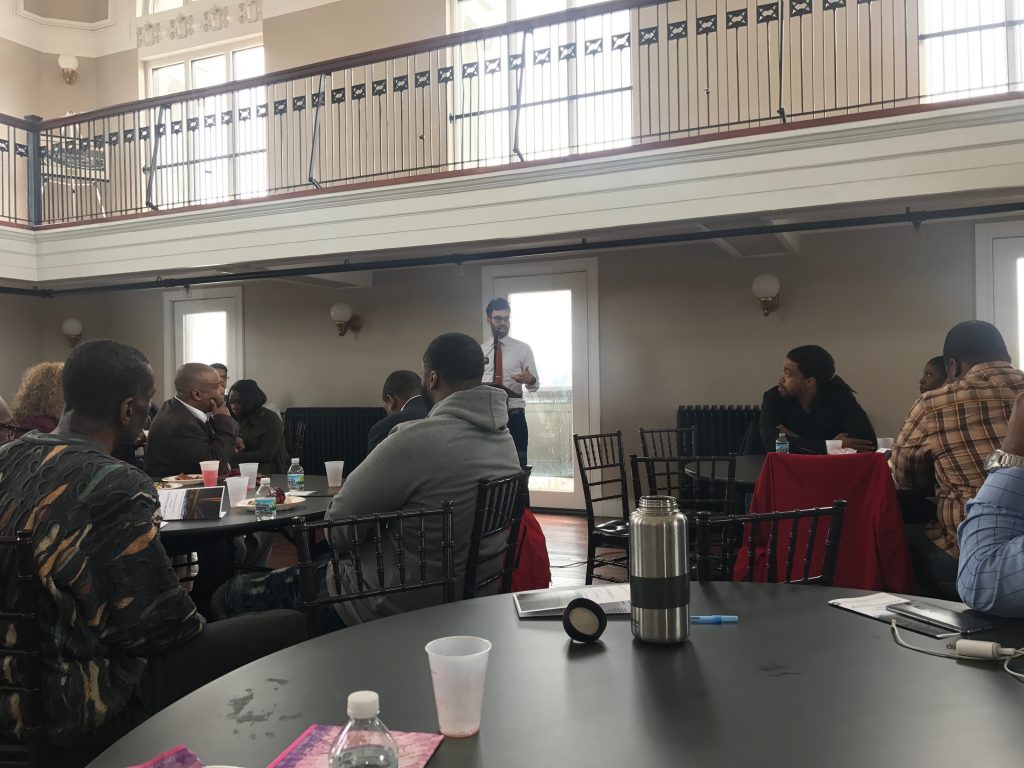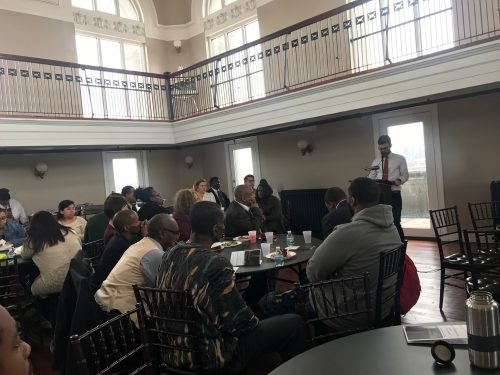
Journalism Through Another Lens

One of the highlights of my semester came when a classmate and I got to interview a group of ex-offenders and then attend their re-entry program graduation.
I’m sure I’ve mentioned this before but, from the time I started thinking about applying to journalism programs to now almost every other day, I think about whether or not I’m built for this– Do I know enough? Should I have taken a different route? Do I have the chops to make it in the field? Am I behind because my undergraduate degree isn’t in journalism?
I wondered these things during classes with just my cohort, in classes with undergraduates who seemed more acclimated and comfortable, at events and meetings around the city. Where does my previous experience come into play? How does an undergraduate degree in social work fit into journalism? I’ll tell you how.
If nothing else, social work is a lens. It helps me filter news and politics through the people and communities I’ve worked with. It puts flesh on problems that can seem far away and unreal.
Because of this decade of working with children and families behind me, I can look at journalism in a way that is people-oriented. Life changes for me when I focus on the advantages of having experience in helping professions.
For Echo magazine, I was able to work with a handful of ex-offenders and talk to them about their transitions back into work and family life after prison. I thought about the societal pressures that led them to make the decisions they made and about how many offenders don’t get the chance to reflect on the lessons they learned after being released. We talked about how they cope when employers only see them as “ex-convicts,” and what triggered life changes for each of them. I thought about our justice system’s traditions of disproportionately locking up people of color and doling out over-the-top sentences for petty crimes. How many current offenders are symptoms of a skewed system?
Fast forward to this summer–I’m working as a pre-school teacher at a private school until I head back to Chicago in August. I get to hang out with 10-14 three and four-year-olds every day, interacting with the kids and their parents to make sure they’re ready for school when the time comes. I’m thinking about what the world is going to look like for my autistic kiddo who loves to swim or for my rough-and-tumble kid who likes to color princesses and has his toenails painted. I’m concerned with schools and funding and parental support. I’m thinking about the kids who don’t get this intimate, family-oriented school setting, who won’t get swim lessons and Spanish lessons offered and who won’t get scheduled family nights where their parents can sit and talk with their teachers over a meal. Because of experiences like these, I’m always thinking about equity in education and labor–what’s available to school kids and how work often keeps parents from being as involved as I know they’d like to be.
For me, social work reminds me who matters when it comes to what the truth really is and why we’re charged to tell it. Issues that can be a detachable set of politics to some are matters of life, death, and livelihood to many. The work is in attaching meaning to the politics and attaching real people to the numbers and statistics. That’s what working with people has done for me.
So, I’m not sure what life experiences or education you have behind you, but if this degree program is lined up in your crosshairs, trust that you can make it work. Whatever you’ve accumulated up until now can be a lens for the work that you’ll get to do in the field of journalism. It’ll give you a perspective and a voice in your writing and reporting that is unique to the life you’ve lived up to this point. Change the way you view your own experiences and watch feelings of inadequacy become less of a thing.
